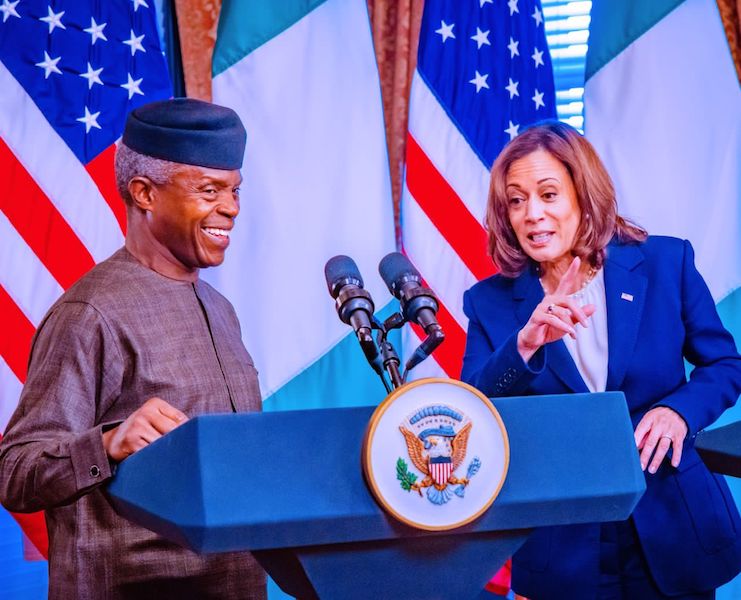There are no products in your shopping cart.
| 0 Items | £0.00 |


VICE president Professor Yemi Osinbajo has met with his US counterpart Kamala Harris at the White House in Washington DC where the two leaders agreed to work together to realise Nigeria’s $140bn Energy Transition Plan.
At the meeting attended by members of the cabinets of both nations Ms Harris said Nigeria is a key country for the survival of democracy in West Africa. Professor Osinbajo's team was made up of finance minister Zainab Ahmed, works and housing minister Babatunde Fashola, power minister Abubakar Aliyu; environment minister Mohammed Abdullahi; petroleum minister Timipre Sylva, the special representative of the UN secretary general for sustainable energy Damilola Ogunbiyi and the Nigerian ambassador to the US Dr Uzoma Emenike.
Ms Harris team included US energy secretary Jennifer Granholm; secretary of the treasury Janet Yellen and World Bank president David Malpass. They discussed ways to realise Nigeria’s energy transition plan which was officially launched last week by Professor Osinbajo in Abuja.
This Energy Transition Plan is a homegrown, data-backed and multi-pronged strategy developed for the attainment of 2060 net-zero emissions commitment in five sectors. These include power, cooking, oil and gas, transport and industry.
Professor Osinbajo chairs Nigeria’s Energy Transition Implementation Working Group, which is made up of relevant ministers and other top government officials. Nigeria needs $410bn to deliver the Transition Plan by 2060 and among other highlights, the plan needs at least $10bn per year above business-as-usual spending for effective implementation.
A signatory to the 2015 Paris climate Change Agreement, Nigeria is committed to reducing greenhouse gases and this involves moving away from polluting fossil fuels to clean energy. According to Professor Osinbajo, the energy transition plan is designed to address energy poverty and climate change crisis and deliver sustainable development goal seven by 2030 and net zero by 2060.
He noted that the plan will lift 100m people out of poverty, reduce Nigeria’s carbon footprint, drive economic growth and create jobs. As part of its clean energy programme, Nigeria had launched its energy transition plan to achieve universal energy access by 2030 and a carbon-neutral economy by 2060 to tackle poverty and climate change.